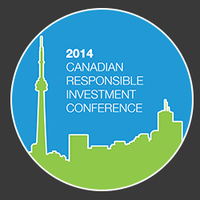Community: Programs and Policies
- Local governments rely on an engaged community for citizen safety and health
- Not-for-profits who work to end poverty or integrate immigrants depend on communities to be places of belonging and economic vibrancy
- Teachers educating children and faith community leaders who nurture people in their spiritual journeys cultivate community connection and care for one another to create safe places to learn and grow
- Businesses rely on their communities to offer great places for their employees to live and on a “business community” to build trust and foster a healthy climate for collaboration
"Community has a job to do," says Peter Block, "and it's up to us as caring and committed citizens to create the conditions for our communities to thrive."
Making community the point is a major undertaking. It requires us to make the common good a priority again. It calls for cooperation and collaboration. It asks that we place the well-being of all of us higher than the well-being of any single one of us. If we take community seriously, we must be willing to give up some control; listen to each other more; and, work together to move beyond simple Band-Aid solutions to shared concerns.
Policies and programs, that support community to do what it was meant to do, need to be identified and supported. What is needed are policies that make it easier to make community the point. Policies that:
- Value the care provided by friends and neighbours equally to the care provided by paid staff;
- Acknowledge and support the reality that 80% of all care given today is provided by parents, friends and volunteers and recognizes that as our society ages the demand on these caregivers could reach a breaking point; and,
- Recognize the importance of place – regional economies and local solutions – as essential in addressing issues of food security, community health, safety and well-being.
What is needed are programs and inspirational ideas that recognize and integrate the power of community into our practices. Ideas like co-housing as a strategy to integrate seniors; neighbourhood watch and block parent programs to foster community safety; sharing initiatives that strengthen economies; and, neighbourhood associations that confront loneliness and promote recreation. We need to encourage innovations that place community at the center of our thinking rather than an assumed ingredient.
Together, these policies and programs will fuel a social movement that has already begun – a movement of tremendous importance – that offers an alternative to the dominant belief in competition, consumerism, and individualism. Community: Programs and Policies hopes to be a catalyst for this movement.
Join us in Kitchener from June 23-26 as we think and act together and advance the discipline of community-building that is at the centre of this desired shift in our collective thinking.


